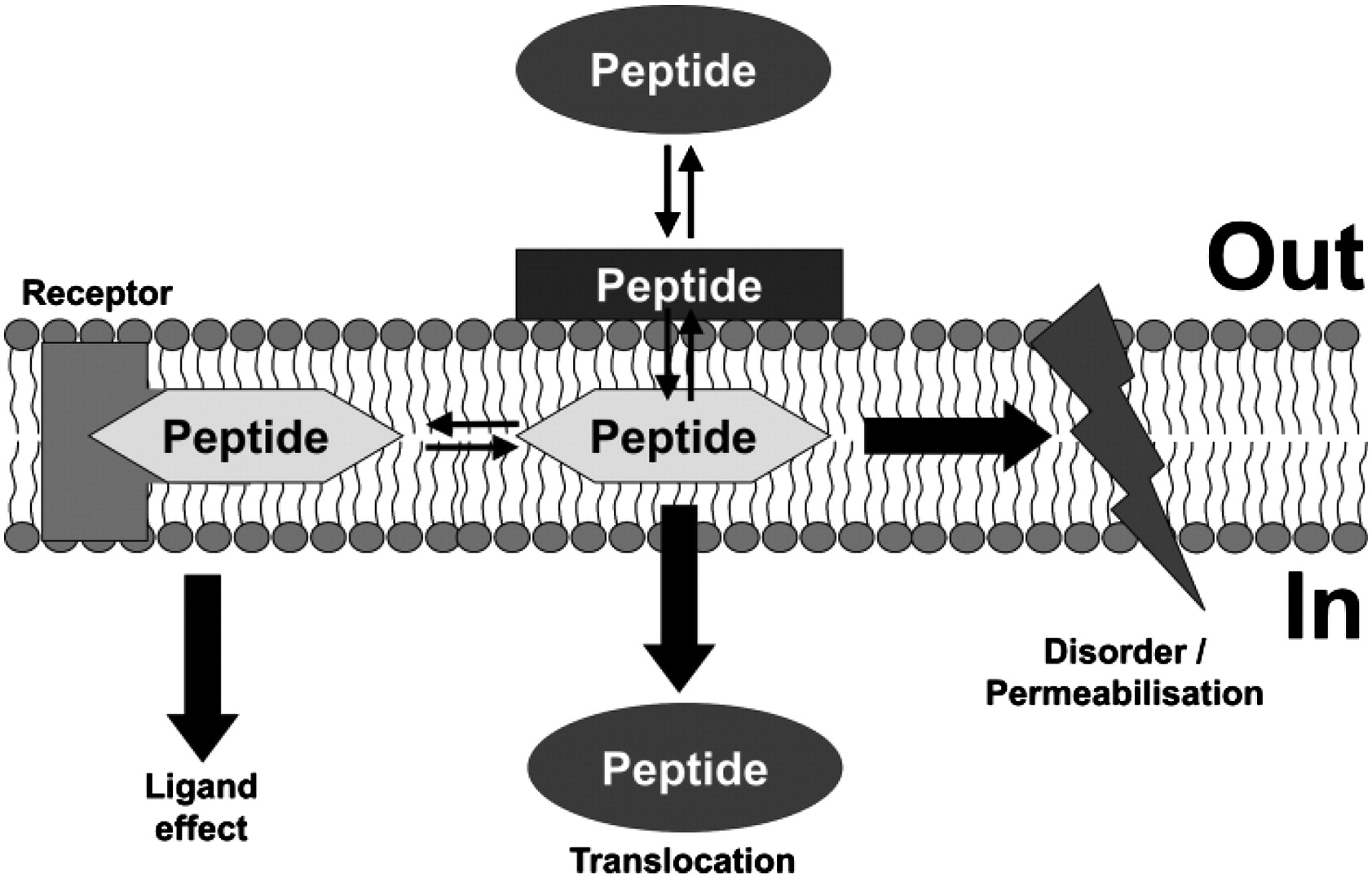Peptide-Lipid Interaction Analysis Service
- Cell-Penetrating Peptides and Drug Delivery Research
- Membrane-Associated Signaling Pathway Studies
- Immunology and Inflammation Regulation Mechanisms
Peptide-Lipid Interaction Analysis Service is a specialized technical service designed to systematically investigate the interaction characteristics between peptide molecules and lipids. Through both quantitative and qualitative approaches, this service examines binding modes, affinity, kinetic parameters, and conformational changes associated with peptide-lipid interactions. It supports researchers in elucidating the functional mechanisms and membrane-targeting properties of bioactive peptides, with broad applications in membrane-active peptide design, drug delivery system development, antimicrobial mechanism studies, and membrane biology research.
Peptide-Lipid Interactions refer to reversible, non-covalent binding events between bioactive peptides and lipid membranes or individual lipid molecules, typically mediated by electrostatic forces, hydrophobic interactions, hydrogen bonding, and other weak forces. These interactions play crucial roles in biological processes such as membrane recognition, transmembrane transport, signal transduction, immune modulation, and membrane protein regulation.
In living systems, the cell membrane serves not only as a structural barrier but also as a dynamic functional platform. Certain natural or synthetic functional peptides-such as antimicrobial peptides, cell-penetrating peptides, and signaling peptides-can directly interact with lipid membranes to mediate cellular responses or modulate membrane structure and function. Therefore, systematically studying the mechanisms of peptide-lipid interactions is of great significance for understanding membrane-related biological processes, developing membrane-targeted therapeutics, and optimizing delivery platforms.

Matos PM. et al. Biochim Biophys Acta. 2010.
Figure 1. Outline of peptide-membrane interactions.
MtoZ Biolabs offers Peptide-Lipid Interaction Analysis Service to support the characterization of peptide-lipid interaction behavior, binding affinity, kinetics, and thermodynamics. Our service covers a range of experimental strategies, including but not limited to surface plasmon resonance (SPR), isothermal titration calorimetry (ITC), nuclear magnetic resonance (NMR) spectroscopy, mass spectrometry-based conformational dynamics analysis.
Analysis Workflow
Peptide-Lipid Interaction Analysis Service Workflow:
1. Project Evaluation and Experimental Design
Design appropriate analysis strategies based on project requirements.
2. Interaction Detection
Perform interaction assays using SPR, ITC, NMR, or mass spectrometry, depending on research needs.
3. Data Modeling and Result Analysis
Use specialized software for kinetic and thermodynamic parameter fitting, binding site identification, and structural visualization modeling.
4. Report Integration and Delivery
Provide complete datasets, analytical figures, and a comprehensive technical interpretation report.
Service Advantages
1. Advanced Analysis Platform: MtoZ Biolabs established an advanced Peptide-Lipid Interaction Analysis Service platform, guaranteeing reliable, fast, and highly accurate analysis service.
2. One-Time-Charge: Our pricing is transparent, no hidden fees or additional costs.
3. High-Data-Quality: Deep data coverage with strict data quality control. AI-powered bioinformatics platform integrates all Peptide-Lipid Interaction Analysis Service data, providing clients with a comprehensive data report.
4. Sensitive Detection of Weak Interactions: Advanced instrumentation and expert technical handling enable precise identification of even low-affinity binding events.
5. Flexible Support for Customized Projects: Customizable service options are available to meet diverse research goals, including basic research, drug development, and biomaterials studies.
Sample Submission Suggestions
Sample Types:
It is recommended to provide high-purity (>95%) synthetic peptides in powder or lyophilized form. Lipid samples can be submitted as liposomes, phospholipid mixtures, or defined lipid compositions with specified ratios.
Storage and Shipping:
Peptide samples should be stored dry and protected from light, and shipped on dry ice. Lipid samples are recommended to be frozen at −80 °C and transported using dry ice.
Additional Notes:
We recommend contacting us prior to sample submission for detailed and tailored sample preparation guidelines.
Applications
Application examples of Peptide-Lipid Interaction Analysis Service:
Analyze the binding capacity of cell-penetrating peptides with liposomes to guide the design of peptide-based delivery systems.
Reveal mechanisms by which peptides regulate the function of membrane receptors, ion channels, and other signaling molecules.
Investigate the role of immune-related peptide-lipid interactions in modulating inflammatory responses.
Deliverables
1. Comprehensive Experimental Details
2. Materials, Instruments, and Methods
3. Total Ion Chromatogram & Quality Control Assessment (project-dependent)
4. Data Analysis, Preprocessing, and Estimation (project-dependent)
5. Bioinformatics Analysis
6. Raw Data Files
Related Services
Protein Interaction Analysis Service
How to order?







